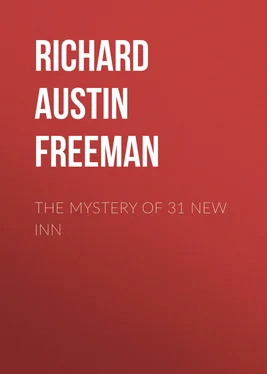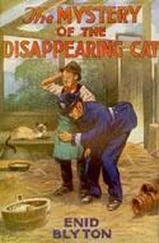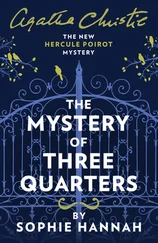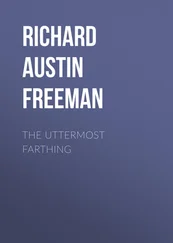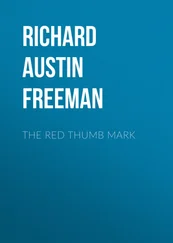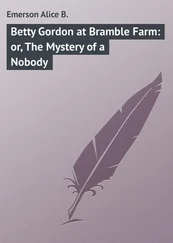Richard Austin Freeman - The Mystery of 31 New Inn
Здесь есть возможность читать онлайн «Richard Austin Freeman - The Mystery of 31 New Inn» — ознакомительный отрывок электронной книги совершенно бесплатно, а после прочтения отрывка купить полную версию. В некоторых случаях можно слушать аудио, скачать через торрент в формате fb2 и присутствует краткое содержание. Жанр: foreign_prose, Классический детектив, foreign_detective, foreign_antique, на английском языке. Описание произведения, (предисловие) а так же отзывы посетителей доступны на портале библиотеки ЛибКат.
- Название:The Mystery of 31 New Inn
- Автор:
- Жанр:
- Год:неизвестен
- ISBN:нет данных
- Рейтинг книги:4 / 5. Голосов: 1
-
Избранное:Добавить в избранное
- Отзывы:
-
Ваша оценка:
- 80
- 1
- 2
- 3
- 4
- 5
The Mystery of 31 New Inn: краткое содержание, описание и аннотация
Предлагаем к чтению аннотацию, описание, краткое содержание или предисловие (зависит от того, что написал сам автор книги «The Mystery of 31 New Inn»). Если вы не нашли необходимую информацию о книге — напишите в комментариях, мы постараемся отыскать её.
The Mystery of 31 New Inn — читать онлайн ознакомительный отрывок
Ниже представлен текст книги, разбитый по страницам. Система сохранения места последней прочитанной страницы, позволяет с удобством читать онлайн бесплатно книгу «The Mystery of 31 New Inn», без необходимости каждый раз заново искать на чём Вы остановились. Поставьте закладку, и сможете в любой момент перейти на страницу, на которой закончили чтение.
Интервал:
Закладка:
But it looked as if I should not. Mr. Weiss's promise to send for me again soon was not fulfilled. Three days passed and still he made no sign. I began to fear that I had been too outspoken; that the shuttered carriage had gone forth to seek some more confiding and easy-going practitioner, and that our elaborate preparations had been made in vain. When the fourth day drew towards a close and still no summons had come, I was disposed reluctantly to write the case off as a lost opportunity.
And at that moment, in the midst of my regrets, the bottle-boy thrust an uncomely head in at the door. His voice was coarse, his accent was hideous, and his grammatical construction beneath contempt; but I forgave him all when I gathered the import of his message.
"Mr. Weiss's carriage is waiting, and he says will you come as quickly as you can because he's took very bad to-night."
I sprang from my chair and hastily collected the necessaries for the journey. The little board and the lamp I put in my overcoat pocket; I overhauled the emergency bag and added to its usual contents a bottle of permanganate of potassium which I thought I might require. Then I tucked the evening paper under my arm and went out.
The coachman, who was standing at the horse's head as I emerged, touched his hat and came forward to open the door.
"I have fortified myself for the long drive, you see," I remarked, exhibiting the newspaper as I stepped into the carriage.
"But you can't read in the dark," said he.
"No, but I have provided myself with a lamp," I replied, producing it and striking a match.
He watched me as I lit the lamp and hooked it on the back cushion, and observed:
"I suppose you found it rather a dull ride last time. It's a longish way. They might have fitted the carriage with an inside lamp. But we shall have to make it a quicker passage to-night. Governor says Mr. Graves is uncommon bad."
With this he slammed the door and locked it. I drew the board from my pocket, laid it on my knee, glanced at my watch, and, as the coachman climbed to his seat, I made the first entry in the little book.
"8.58. W. by S. Start from home. Horse 13 hands."
The first move of the carriage on starting was to turn round as if heading for Newington Butts, and the second entry accordingly read:
"8.58.30. E. by N."
But this direction was not maintained long. Very soon we turned south and then west and then south again. I sat with my eyes riveted on the compass, following with some difficulty its rapid changes. The needle swung to and fro incessantly but always within a definite arc, the centre of which was the true direction. But this direction varied from minute to minute in the most astonishing manner. West, south, east, north, the carriage turned, "boxing" the compass until I lost all count of direction. It was an amazing performance. Considering that the man was driving against time on a mission of life and death urgency, his carelessness as to direction was astounding. The tortuousness of the route must have made the journey twice as long as it need have been with a little more careful selection. At least so it appeared to me, though, naturally, I was not in a position to offer an authoritative criticism.
As far as I could judge, we followed the same route as before. Once I heard a tug's whistle and knew that we were near the river, and we passed the railway station, apparently at the same time as on the previous occasion, for I heard a passenger train start and assumed that it was the same train. We crossed quite a number of thoroughfares with tram-lines—I had no idea there were so many—and it was a revelation to me to find how numerous the railway arches were in this part of London and how continually the nature of the road-metal varied.
It was by no means a dull journey this time. The incessant changes of direction and variations in the character of the road kept me most uncommonly busy; for I had hardly time to scribble down one entry before the compass-needle would swing round sharply, showing that we had once more turned a corner; and I was quite taken by surprise when the carriage slowed down and turned into the covered way. Very hastily I scribbled down the final entry ("9.24. S.E. In covered way"), and having closed the book and slipped it and the board into my pocket, had just opened out the newspaper when the carriage door was unlocked and opened, whereupon I unhooked and blew out the lamp and pocketed that too, reflecting that it might be useful later.
As on the last occasion, Mrs. Schallibaum stood in the open doorway with a lighted candle. But she was a good deal less self-possessed this time. In fact she looked rather wild and terrified. Even by the candle-light I could see that she was very pale and she seemed unable to keep still. As she gave me the few necessary words of explanation, she fidgeted incessantly and her hands and feet were in constant movement.
"You had better come up with me at once," she said. "Mr. Graves is much worse to-night. We will wait not for Mr. Weiss."
Without waiting for a reply she quickly ascended the stairs and I followed. The room was in much the same condition as before. But the patient was not. As soon as I entered the room, a soft, rhythmical gurgle from the bed gave me a very clear warning of danger. I stepped forward quickly and looked down at the prostrate figure, and the warning gathered emphasis. The sick man's ghastly face was yet more ghastly; his eyes were more sunken, his skin more livid; "his nose was as sharp as a pen," and if he did not "babble of green fields" it was because he seemed to be beyond even that. If it had been a case of disease, I should have said at once that he was dying. He had all the appearance of a man in articulo mortis . Even as it was, feeling convinced that the case was one of morphine poisoning, I was far from confident that I should be able to draw him back from the extreme edge of vitality on which he trembled so insecurely.
"He is very ill? He is dying?"
It was Mrs. Schallibaum's voice; very low, but eager and intense. I turned, with my finger on the patient's wrist, and looked into the face of the most thoroughly scared woman I have ever seen. She made no attempt now to avoid the light, but looked me squarely in the face, and I noticed, half-unconsciously, that her eyes were brown and had a curious strained expression.
"Yes," I answered, "he is very ill. He is in great danger."
She still stared at me fixedly for some seconds. And then a very odd thing occurred. Suddenly she squinted—squinted horribly; not with the familiar convergent squint which burlesque artists imitate, but with external or divergent squint of extreme near sight or unequal vision. The effect was quite startling. One moment both her eyes were looking straight into mine; the next, one of them rolled round until it looked out of the uttermost corner, leaving the other gazing steadily forward.
She was evidently conscious of the change, for she turned her head away quickly and reddened somewhat. But it was no time for thoughts of personal appearance.
"You can save him, doctor! You will not let him die! He must not be allowed to die!"
She spoke with as much passion as if he had been the dearest friend that she had in the world, which I suspected was far from being the case. But her manifest terror had its uses.
"If anything is to be done to save him," I said, "it must be done quickly. I will give him some medicine at once, and meanwhile you must make some strong coffee."
"Coffee!" she exclaimed. "But we have none in the house. Will not tea do, if I make it very strong?"
"No, it will not. I must have coffee; and I must have it quickly."
"Then I suppose I must go and get some. But it is late. The shops will be shut. And I don't like leaving Mr. Graves."
Читать дальшеИнтервал:
Закладка:
Похожие книги на «The Mystery of 31 New Inn»
Представляем Вашему вниманию похожие книги на «The Mystery of 31 New Inn» списком для выбора. Мы отобрали схожую по названию и смыслу литературу в надежде предоставить читателям больше вариантов отыскать новые, интересные, ещё непрочитанные произведения.
Обсуждение, отзывы о книге «The Mystery of 31 New Inn» и просто собственные мнения читателей. Оставьте ваши комментарии, напишите, что Вы думаете о произведении, его смысле или главных героях. Укажите что конкретно понравилось, а что нет, и почему Вы так считаете.
